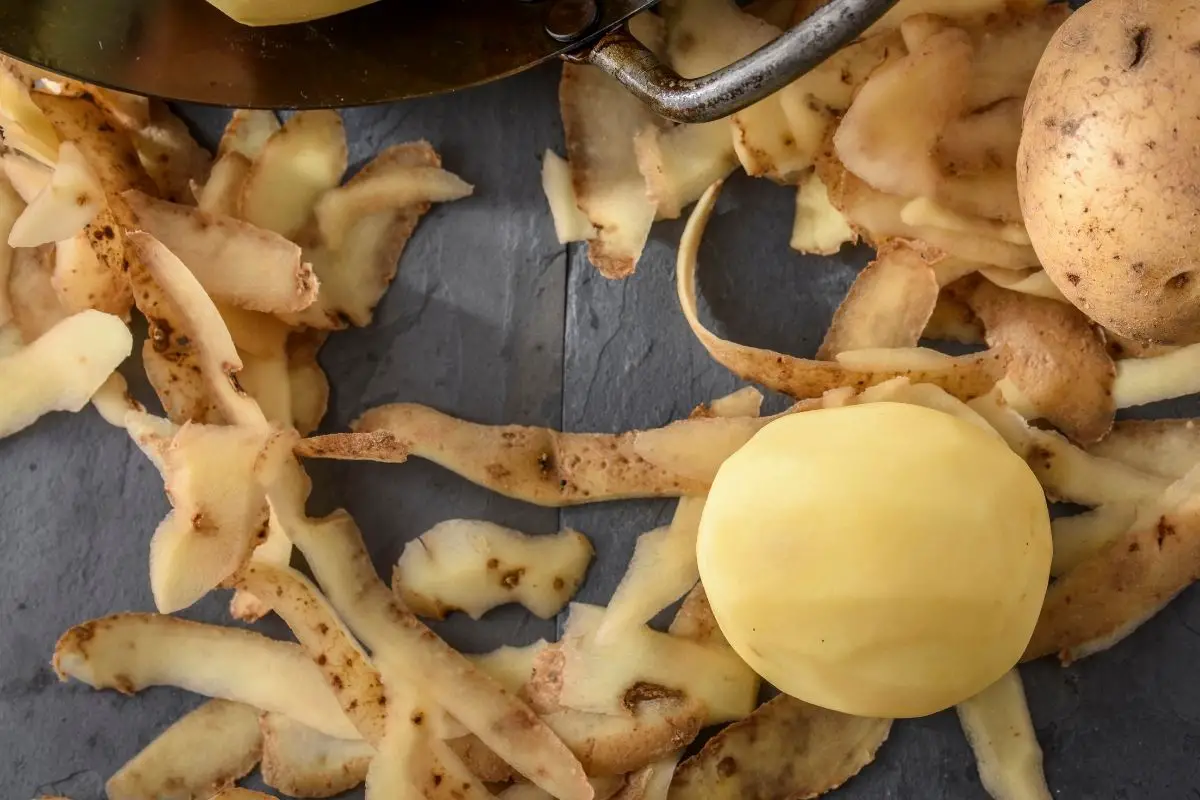Vegetable Peel Ideas: Can You Compost Potatoes?
Did you know that potatoes are the third most popular food crop in the world (after rice and wheat, of course)?
Whether you take them baked, mashed, or fried, it’s hard to deny how crucial potatoes are to the average Western family’s diet – my family included! And that means a whole lot of potato peels are going in the trash every day!
Composting potatoes, whether it’s through bokashi or traditional compost, is 100% possible. As long as the material is free of disease, composting potato scraps is no different than any other vegetable matter.
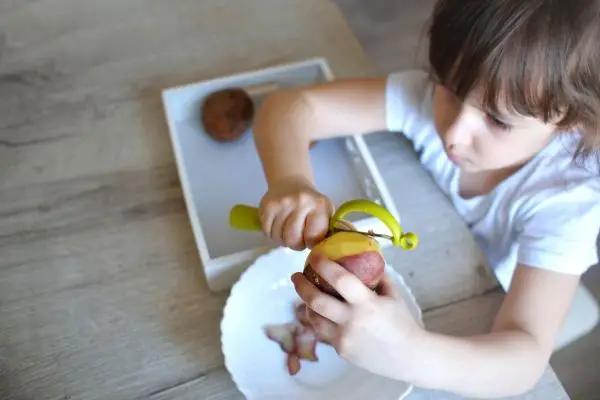
But composting potatoes isn’t as straightforward as it might seem! Here’s everything you need to know about sustainably disposing of this everyday kitchen waste:
Can I Compost Potatoes?
Yes! Potatoes can be composted with the rest of your garden-friendly kitchen scraps.
Despite their typical color, potatoes are considered a “green” material. Be sure to balance out your compost heap with “brown” materials like wood chips, dry leaves, or cardboard.
Can You Compost Potato Plants?
Technically, yes! The stems and leaves of potato plants can be composted just like any other yard or garden debris.
Before you get started, though, it’s important to understand the potential risks of composting potato plants from your garden.
Is It Safe To Compost Blighted Potatoes?
Blight is a spore-borne disease that most commonly affects the leaves of garden potato plants. In extreme cases, though, the infection can reach all of the way to the tubers.
Blight spores spread very easily and are incredibly resilient. Even after the potatoes are harvested, spores can remain in the surrounding soil for up to 4 years!
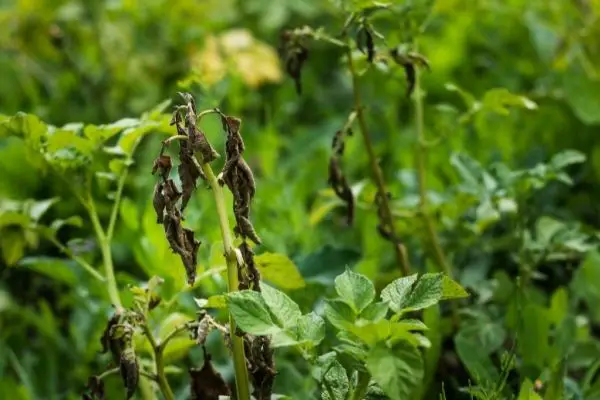
Potatoes infected with blight should never be composted. Leaves and stems of potato plants infected by blight should also be kept far away from active compost.
Some potato gardeners avoid composting the foliage altogether because blight infections are so common.
If blight spores are introduced to your compost, it will be extremely hard to remove them — starting over is often the only solution.
How To Compost Potato Peels
Potato skins are one of the most common types of organic kitchen waste. You can ensure discarded potato peels break down in your compost heap efficiently and safely by using the following tips:
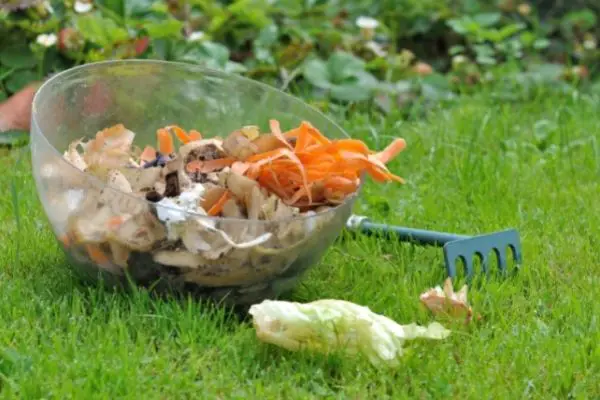
- Break apart potato skins into small pieces before composting. If you’re composting a large number of potato peels, add only a fraction of the waste to your compost pile at a time.
- Inspect all potato waste for signs of blight — unusually brown or purple skin, white mold, decaying tuber flesh, etc. If you’re ever unsure about the presence of blight spores, it’s better to be safe than sorry!
- Place potato peels as deep into your compost as possible. This will cut off sunlight and oxygen from the discarded skins and help prevent new potato plants from sprouting. (Keeping old potato peels from sprouting will greatly reduce the risk of blight forming in your compost pile.)
Frequently Asked Questions
Can you compost potato chips?
Yes! I find it hard to believe that leftover chips are a thing, but yes- they are safe for composting!
Potato chips are an organic material that can be composted like most other food items. They are considered a “green” material when it comes to feeding your compost pile.
With that said, be careful about adding particularly greasy potato chips to your compost. Grease (and other forms of fat) are not good for home composting and can lead to foul odors coming from your heap.
For the best results: Avoid composting chips that are extremely greasy. When adding potato chips to your compost, finely crush the chips and integrate them in small amounts to maintain a balanced pile.
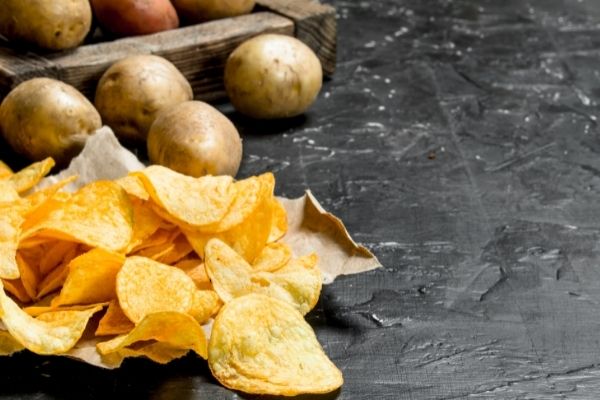
Can you compost sweet potatoes?
When it comes to composting, you can treat sweet potatoes just as you would any other variety of tuber!
Feel free to compost sweet potato peels, along with uneaten fries and chips made of this tuber. If you grow sweet potatoes in your garden, old stems and foliage can also be composted.
While sweet potato is not innately vulnerable to traditional potato blight, it is susceptible to something called Southern blight. Care should be taken when composting sweet potatoes to avoid introducing these blight spores to your pile.
Can you compost potato skins in a worm bin?
Potatoes, like all members of the nightshade family, contain a toxic compound called solanine. Solanine acts as a natural pesticide. Composting worms will avoid consuming potato peels.
Once the potato waste partially breaks down, it will become safe for the worms to eat. In the meantime, however, the solanine being released from the peels may also interfere with the beneficial bacteria in your worm bin.
So, while you can technically add potato skins to your worm bin, it’s not an ideal solution.

